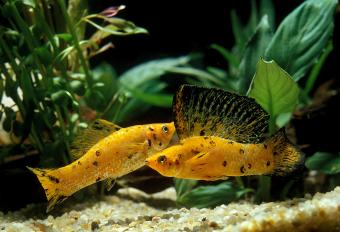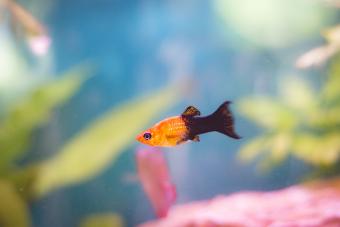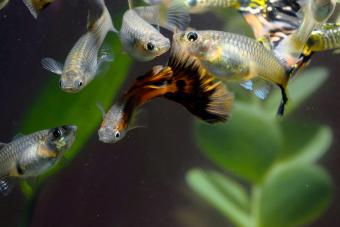
While you might get the impression that betta fish can live in small, empty aquariums based on seeing them in tiny cups in pet stores or in movies, this is far from the truth. To stay healthy, betta fish need the same types of care and enrichment as other fish. Some kind of day/night cycle is natural and will help them thrive, but too much or the wrong kind of light can be harmful.
Betta Fish Don't Need Much Light
Providing artificial light in a betta tank isn't absolutely necessary, but, "some ambient day/night cycle is good for them," says aquarium setup and maintenance expert Austin Weber of Lucky Pup Adventures. That said, they're used to low-light conditions.
"If you think about their natural habitat, it's normally not crystal clear water like we want to see in our aquariums, although that sure makes it a lot more enjoyable for us!" He notes that "Bettas naturally come from what are essentially rice paddies in Vietnam, and the water there is muddy and dark, so they can be in the dark and be fine."
Can Betta Fish See in the Dark?
No, but betta fish can see well enough in murky water because they've adapted to low-light conditions. Their vision is monocular, which means they can see in opposite directions concurrently, but they have poor depth perception. In their natural habitat, at night time when the water they live in is truly dark, a betta fish will rest up and sleep, so excellent night vision isn't necessary for them.
Instead of relying on their eyes in the dark, bettas have a "lateral line" along their bodies to help them navigate and perceive changes in their environment. This part of their anatomy helps them to sense movement and changes in the water. The line is actually a series of tiny holes along their sides.
Whether it's a betta fish or any other type of fish, it's important to provide a habitat in your tank that mimics their natural conditions. Maintaining proper water temperature, pH balance, species-appropriate diet, and environmental enrichment, like plants and items to hide under or rest on, all help to make a healthy living space.

How to Provide Light for Your Betta Fish
Austin recommends that you provide your betta fish with about eight to 10 hours of light each day, but no more than that. "Too much light can be detrimental. If it's on 24/7, it's harder for them to rest, and they can become stressed," Weber says.
A stressed betta fish can easily become ill and can die or, at the very least, will live a shorter lifespan.
Should I Put My Betta In the Sun?
While placing a tank where there's sunlight can be an easy way to provide light, it may not be the best option for your fish. Placing a tank in direct sunlight can help improve the growth of live plants in the tank, and your fish may enjoy it, but the downside is that "you are more likely to have algae growth in the tank," according to Weber.
Direct sunlight can also heat the water up past the acceptable range of temperature. If you keep your fish tank in a room that has natural light during the day but they are not in the way of direct sunlight, and the room is dark at night, this may be enough for them to be comfortable, as long as the water temperature is not affected.
Artificial Light & Your Betta Tank
Weber says that "artificial light will give you a better view of them" compared to natural sunlight and can work well as long as you give the fish some time with the lights off. Florescent lighting can provide light for the tank and foster more live plant growth while not heating the water like incandescent lighting. They also last longer than other types of bulbs, making them an economical choice.
If you can't be sure you'll turn the lights off at the end of each eight to 10-hour day, you can purchase a timer to provide a regular day/night cycle.
Colored Lights & Your Betta Tank
Many aquarium sets come with lights installed that cycle through a variety of colors. These colored lights shouldn't affect your betta fish in any way that's different from regular "white" lights, but some owners have a different experience.
It's possible that some bettas might react to different colored lights and become stressed as a result. Just keep an eye on your fish for signs of stress or illness, and if it coincides with the lights, switch them out.
When in Doubt, Mimic Natural Light Cycles for Bettas
Betta fish do best with light to be truly healthy, both physically and behaviorally. Just be sure that you provide them with a regular day/night cycle so they have a period of dark when they can rest. Your light source can be artificial or it can be natural as long as you avoid direct sunlight and light that might heat up the aquarium water.







